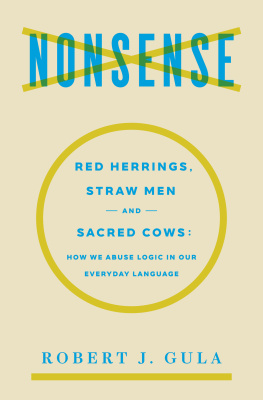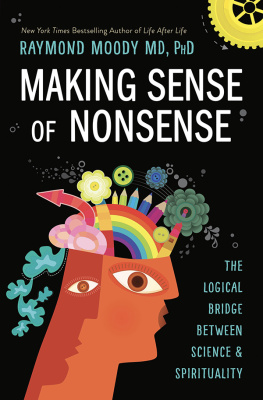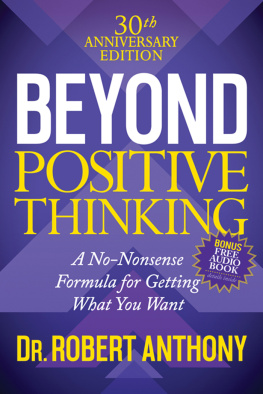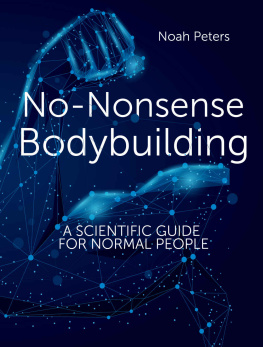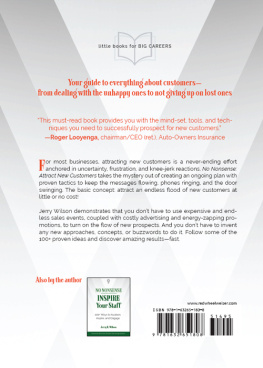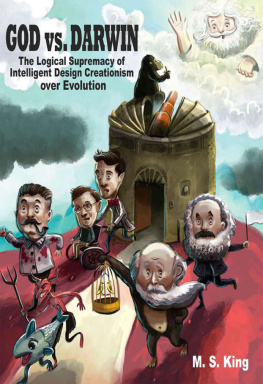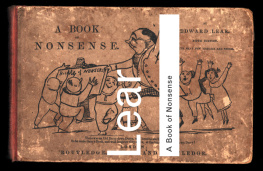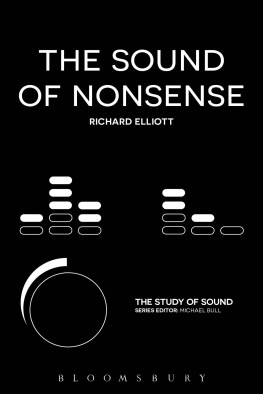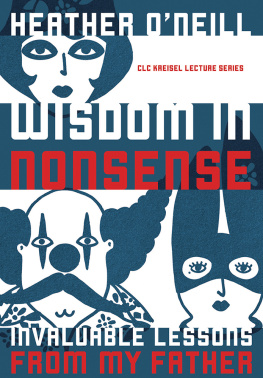Nonsense: Red Herrings, Straw Men and Sacred Cows: How We Abuse Logic in Our Everyday Language 2018 by Axios Institute. All rights reserved. Printed in the United States of America. No part of this book may be used or reproduced in any manner whatsoever without written permission except in the case of brief quotations used in critical articles and reviews.
Cover by Mark Melnick.
Foreword
A nyone who met Robert John Gula in his relatively short life of forty-seven years, a life prematurely cut short by pancreatic cancer, was immediately impressed: the energy, the piercing eyes, the clarity and brevity with which he spoke, the athletic form, the mass of swept-aside but rarely tousled sandy brown and gray hair, the sometimes impish sense of humor, the complete concentration with which he listened, really listened, to others, the sparkling mind. Here was someone who set track records as a youth, who loved dogs and children, who played the piano at a concert level with special enthusiasm for Franz Liszt, but who also wrote or co-wrote seventeen books on subjects ranging from Mythology: Greek and Roman to Precision: A Reference Handbook for Writers , and who also taught Latin, Greek, algebra, geometry, chemistry, English composition, and, most famously, logic, in addition to serving as Director of Studies, at the Groton School, one of the best secondary schools in America.
In a listing in Contemporary Authors , Bob Gula described why he wrote his last book, a handbook of verbal logic. Nonsense came about because of my frustration in seeing how people, even highly intelligent people, are often simply unable to [communicate] when in a group. Having seen many meetings and discussions that floundered, I began to wonder why. That wonder led to a course at Groton on informal logic, and that logic course led to Nonsense .
I notice that some people are afraid of logic. You and your logic, they say to me. However, I also note that this attitude usually reflects the fact that they have been caught short, either not knowing what they are talking about, not having thought through their position, or not realizing that they are reacting emotionally rather than rationallythat is, that theres some hidden agenda behind their attitudes.
Nonsense was intended to be the best compilation and study of verbal logical fallacies available anywhere, and it is that and more. On one level, it is a handbook of ways that people deceive themselves and others. If a fallacy exists, Gula has identified and labeled it, like a joyful lepidopterist showing off every variation on butterfly wings. On another level, it is a short course in nonmathematical logical thinking, a form of thinking that is especially important for philosophy and economics, but also one that all of us use and often horrendously abuse every day. In substance, the book is a remarkable tour de force of scholarship, yet in style is unexpectedly relaxed, informal, accessible, a pleasure either to read or to consult.
Nor should potential readers or users be intimidated by the sheer number of fallaciesover 170which are listed and explained. In a broader sense, they are all variations on a few simple themes, the habitual human tendency to be: disorderly, beginning at an inappropriate place or failing to proceed properly; disorganized, with different objects not properly distinguished from each other or properly categorized; inconsistent, often with direct self-contradiction; unclear, whether intentionally or unintentionally; irrelevant, that is, injecting information or arguments that are irrelevant to what is being asserted; or incomplete, omitting some important fact, point, or perspective.
Summarized in these terms, Gulas book should be familiar enough to all of us. But what is most impressive and fun about Nonsense is all the specifics, all the myriad ways that human beings go about being illogical, all the variations and permutations, each itself covered in an orderly, organized, consistent, clear, relevant, and complete way. One of Gulas students at Groton said in the school newspaper that the book taught me how to think, and another said, It changes your life. It is rare for a handbook, even one that is the best reference book in its field, to change someones life. But this one can change anyones life, if he or she imbibes Gulas spirit as well as studies his numerous examples.
Hunter Lewis
One
Everyday Nonsense
I just know that that doesnt make any sense, but Im not sure why.
I ts frustrating to know in your heart that what youve just heard is nonsense but not to be able to pinpoint why it is nonsense. If youve ever found yourself in that position, this book should help. It identifies and itemizes the many different guises that erroneous thinking may assume, and it explains some of the reasons for erroneous thinking. This book will not turn you into a skilled rebuttalist, but it will give you the ammunition to become one. And, even more important, it will put you in a position of strength in steering a discussion.
Youll find many of your friends and acquaintances throughout these pages, but you will also find yourself from time to time. None of us is immune to nonsense.
Are men and women by nature hopelessly muddled creatures? By nature, yes. Muddled, yes. Hopelessly, no. Men and women may be rational animals, but they are not by nature reasoning animals. Careful and clear thinking requires a certain rigor; it is a skill, and, like all skills, it requires training, practice, and vigilance. Before one can use ones reason, one should know the traps that are always awaiting the untutored mind. Hence this booka book on nonsense, a summary of the devices that camouflage and subvert reason. If we recognize the pitfalls and ruses, we may be able to avoid them and we may be able to discourage others from relying upon them.
First, some general principles. Lets not call them laws; and, since theyre not particularly original, I wont attach my name to them. They are merely a description of patterns that seem to characterize the ways that people tend to respond and think. For example, people:
1. tend to believe what they want to believe.
2. tend to project their own biases or experiences upon situations.
3. tend to generalize from a specific event.
4. tend to get personally involved in the analysis of an issue and tend to let their feelings overcome a sense of objectivity.
5. are not good listeners. They hear selectively. They often hear only what they want to hear.
6. are eager to rationalize.
7. are often unable to distinguish what is relevant from what is irrelevant.
8. are easily diverted from the specific issue at hand.
9. are usually unwilling to explore thoroughly the ramifications of a topic; tend to oversimplify.
10. often judge from appearances. They observe something, misinterpret what they observe, and make terrible errors in judgment.
11. often simply dont know what they are talking about, especially in matters of general discussion. They rarely think carefully before they speak, but they allow their feelings, prejudices, biases, likes, dislikes, hopes, and frustrations to supersede careful thinking.
12. rarely act according to a set of consistent standards. Rarely do they examine the evidence and then form a conclusion. Rather, they tend to do whatever they want to do and to believe whatever they want to believe and then find whatever evidence will support their actions or their beliefs. They often think selectively: in evaluating a situation they are eager to find reasons to support what they want to support and they are just as eager to ignore or disregard reasons that dont support what they want.

